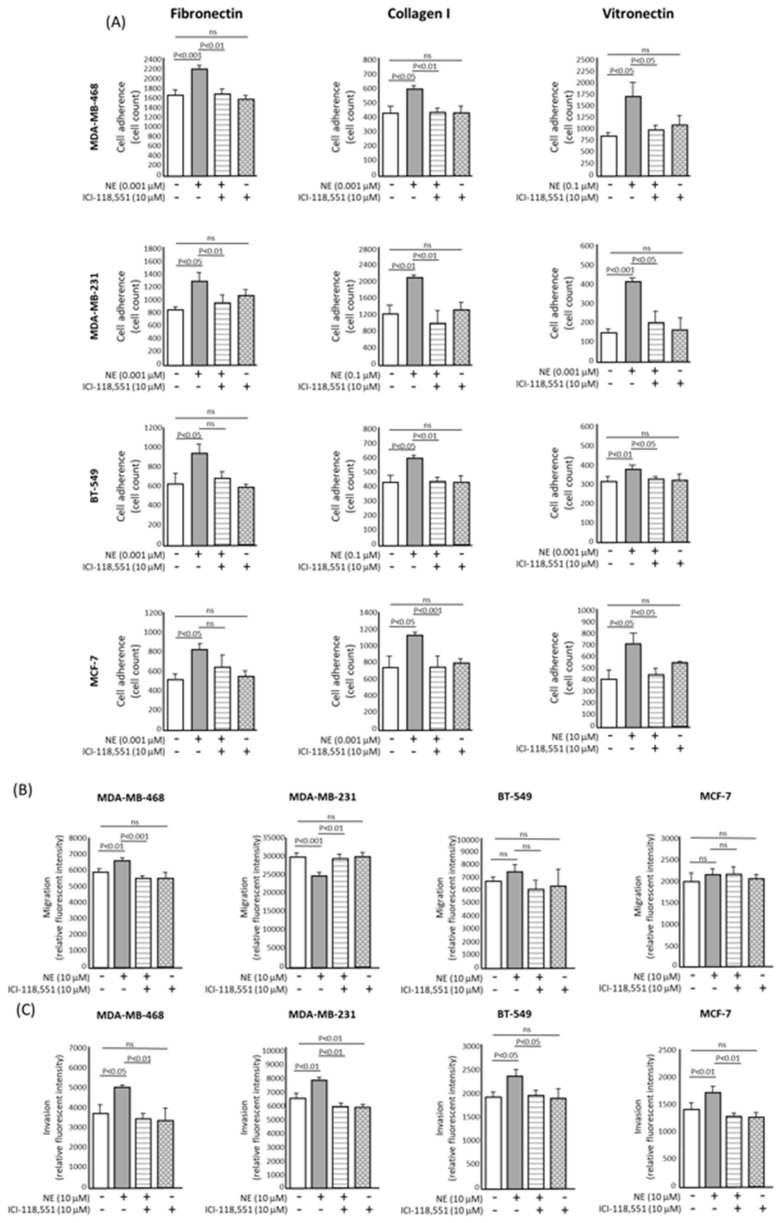Figure 2.
Effect of norepinephrine and the selective β2-adrenoceptor antagonist ICI-118,551 on breast cancer cell adhesion, migration and invasion in vitro. (A) β2-adrenoceptor blockade using ICI-118,551 inhibits norepinephrine-induced adhesion of breast cancer cells to fibronectin and collagen I in vitro. Quantitative analysis of the number of cells adhered to wells coated with 10 μg/mL of fibronectin, collagen I or vitronectin after 3 h of incubation. Simultaneous treatment with norepinephrine and the selective antagonist ICI-118,551 compound reduced the adhesion in all four cell lines grown on collagen I and vitronectin coated surfaces (p < 0.05). Only the basal-type MDA-MB-468 and MDA-MB-231 cell lines showed a reduction in cell adhesion when grown on fibronectin (p < 0.01). (B) Quantitative analysis of the influence of ICI-118,551 treatment on the transwell migration of the breast cancer cell lines. Norepinephrine challenge caused a significant increase in the migration of MDA-MB-468 cells (p < 0.05) and this increase was completely reversed by the concomitant administration of ICI-118,551 antagonist (p < 0.05). (C) Quantitative analysis of the influence of ICI-118,551 treatment on the invasion of the breast cancer cell line through a basement membrane epithelium (BME) coated membrane. Treatment with the ICI-118,551 antagonist significantly decreased the invasive capacity of MDA-MB-468, MDA-MB-231 and MCF-7 cell lines following norepinephrine challenge (p < 0.05). All assays were performed in triplicate (n = 3). Results shown are the mean ± standard deviation. Statistical analysis was performed using a one-way ANOVA (analysis of variance) test (Dunnett’s multiple comparison test).

